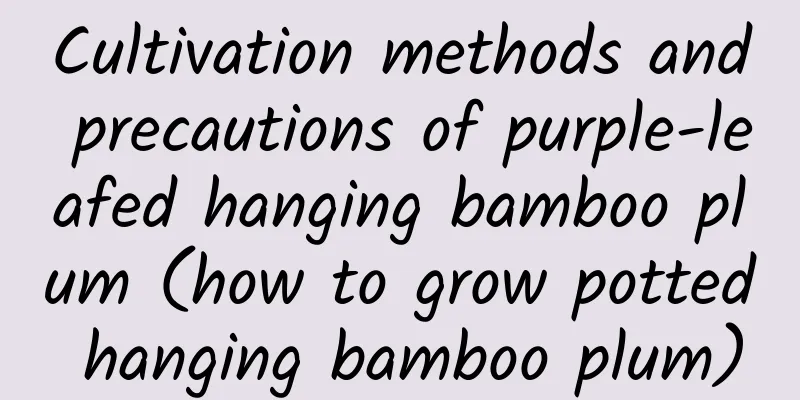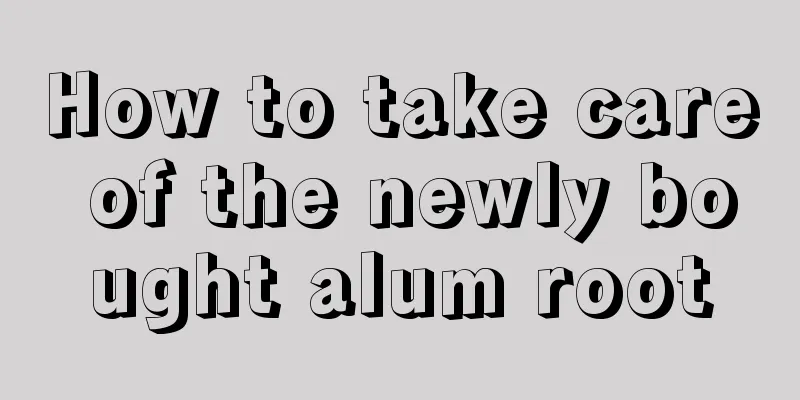How to raise the roots of a bonsai plant

one. RepottingWhen taking out the entire Serissa plant, remember to place it sideways and pat it appropriately. It should be noted that some soil stuck to the roots must be retained. Some people think that it is best to keep the original soil ball, but it is still necessary to check the roots properly. So, to be on the safe side, only a part of the original soil ball can be retained. two. conceptionCarefully observe the growth characteristics of the roots of the Serissa plant to determine its specific shape. The best thing is naturally to cover all aspects. However, the growth forms of natural plants cannot be completely satisfactory. Therefore, if you cannot have the best of both worlds, you can focus on the positive side while taking the side into consideration. Determining the front side also requires skills. The best viewing side is determined by coordinating with the roots. To improve efficiency, you can come up with ideas by drawing sketches or thinking about them in your mind in advance. three. Root pruningOnce you have a more detailed understanding of the root system of June snow, you can start pruning. The thick root system can be preserved, while the dead or weak roots should be removed promptly. Use palm fiber to tie it up according to the intention, and then use stones to block it appropriately to achieve the best effect. It is best to keep this step concise and clear so as to highlight the main subject. Four. BasinIt is recommended to use purple clay pots and sandy loam that is rich in organic matter and fertile. When potting, remember to pad the holes with tiles to facilitate drainage. Next, pour new soil as the base soil into one-third of the pot, then add new soil, and then put the finished June snow in, add the original soil and pat it down, making sure the soil and roots are tightly combined. five. Root systemAfter watering the June Snow to establish its roots, you can leave it alone for care. Once new leaves appear and the roots grow deep enough, you can water the plant with urgent water. After about three months, the upper soil will gradually be washed away and lowered, the roots will become increasingly exposed, and the effects of lifting the roots and exposing the claws will begin to be seen. The above are the detailed steps. It is also important to note that because June snow grows vigorously, applying fertilizer will cause the branches and leaves to grow too long, destroying the shape. Therefore, remember not to fertilize the June Snow within three months. You can fertilize it appropriately after three months. |
>>: How to grow Longjiao Peony
Recommend
Can I put green radish in the wealth position?
1. You can put Because the Feng Shui position is ...
How often should I water the camellia? How long should I wait before watering?
How often should you water your camellia? Camelli...
How to prune Ixora
Pruning the branches and leaves of Ixora Generall...
How to water potted gardenias
1. Watering method In spring, water gardenias in ...
Why doesn't the desert rose bloom?
When does it bloom? The desert rose will not bloo...
Why Roses Don't Bloom?
1. No pruning 1. Reason: If the side branches are...
Can lobster shells be used as fertilizer?
Lobster shells as fertilizer Generally, lobster s...
How to manage bitter melon cultivation to produce more melons?
Bitter melon is a widely grown vegetable and can ...
When to sow fuchsia and how to germinate it
1. When to sow Fuchsia is afraid of high temperat...
How to water marigolds
1. Watering during transplanting After determinin...
What vegetables are suitable for growing on yellow soil?
Yellow soil is not suitable for growing vegetable...
What to do if the lucky bamboo leaves become soft
1. Root system problems (1) Specific reasons: Gen...
Things to note when changing soil for Clivia: Can the old soil still be used? Do you want to trim the roots? Do I need to water after changing it?
1. Can old soil be used? It prefers fertile, well...
Why do apricot leaves curl?
1. Improper moisture Reason: During the planting ...
What to do if the leaves of Kalanchoe turn yellow and soft
1. Watering in time Cause: Yellowing and softenin...









